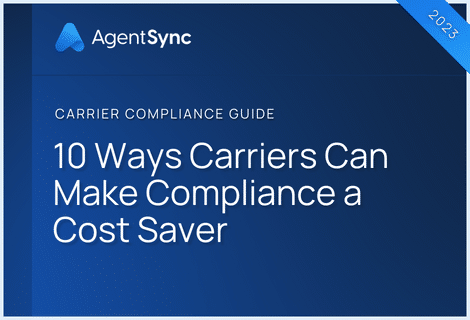

Securities brokers, insurance brokers, agents, producers, advisors, representatives – oh my! We decode the vocabulary of the wide world of securities and insurance.
Securities brokers aren’t necessarily licensed to sell insurance products, and insurance agents aren’t necessarily licensed to sell securities. But with a large degree of overlap between these two distinct types of careers, many brokers, agents, producers (or whatever word you use!) are dually licensed to sell both securities and insurance.
We’ll explore the similarities and differences, along with where the two types of licenses overlap and intersect.
Insurance agents, brokers, and producers: a refresher
Because nothing in this industry is simple, there are several terms commonly used to refer to someone who sells (or solicits, or negotiates) insurance. They can all have specific meanings, and at the same time, they can all sometimes be used interchangeably, or at least with a good bit of overlap. We’ve gone in-depth with these terms in previous blog posts, so just a quick recap:
- An insurance agent can be “captive” and sell exclusively for one insurance carrier or “independent” and sell multiple insurance carriers’ products.
- An insurance broker specifically represents the client and not the insurance company. Often, insurance brokers are also independent agents and the terms are used interchangeably.
- An insurance producer is someone who sells insurance policies. It’s an umbrella term for a broker or agent.
- An insurance advisor or consultant may advise clients on the types of insurance they need but may not be licensed and appointed to sell those insurance products. And if they’re not, they’re also not allowed to specifically direct consumers to a product, nor to make any money off insurance products the client buys.
Securities brokers, advisors, and representatives: an overview
Securities brokers, also often called broker-dealers, are the people responsible for selling securities products to clients. Whereas, in insurance sales, an “insurance agent” is the most common way to refer to the customer-facing sales role, the world of securities uses the word broker.
What are securities?
The word “securities” is used to describe a whole category of financial products, most notably stocks, bonds, and options. A security is a financial vehicle that has value and implies some form of ownership on the part of its holder. For example, when you own stock in a company, you own a certain percentage of that company based on how much of its stock you hold.
What’s a securities broker?
A securities broker is a person (or agency) who sells securities to consumers. The broker has access to a variety of securities products and services and can sell them to people and businesses looking to invest.
What are other names for securities brokers?
Security brokers can also be called broker-dealers, financial services sales agents, securities agents, registered representatives, account executives, investment executives, advisors, or representatives. Just like in insurance, there are plenty of words to describe someone who sells securities based on which types they sell, who they represent during the sale, and how they get paid.
What’s the difference between securities brokers and advisors?
A securities broker, whether working alone or at a larger securities brokerage, is a person licensed to sell securities to consumers. An advisor, often called an investment advisor, is someone who doesn’t buy or sell securities and instead offers professional advice and consultation to clients. An advisor may help clients decide on their investment strategy and recommend certain types of investments, but they aren’t selling securities, and they don’t earn commissions on securities that a client purchases.
What’s the difference between securities brokers and representatives?
A representative, or more accurately, a registered representative, is in fact the same thing as a securities broker. Regardless of which words you use, this is a person who’s licensed to transact securities products on behalf of their client. Whether a broker, broker-dealer, or representative, the professional is only authorized to make securities transactions that the client gives permission for them to do. In this case, “securities broker” is a broader umbrella term, while a registered representative is selling securities for the clients of whatever broker-dealer business or registered firm they represent.
How are securities brokers licensed and regulated?
Similar to insurance, anyone who sells securities has to be appropriately licensed and credentialed to do so. Unlike insurance, securities licensing regulations don’t change much from state to state across the U.S., with some fairly minor administrative exceptions. Instead, the Financial Industry Regulatory Authority (FINRA) is a federal-level organization in charge of securities licensing. FINRA sets the requirements for people who want to become licensed securities brokers and administers the licensing exams.
Dual licensing: When an insurance agent is also a securities broker
Insurance and securities often intersect, as we’ve explained in detail in previous blogs. In some cases, an insurance producer may want or need to become a licensed securities broker-dealer so they can provide more options to their insurance clients. On the flip side, a securities broker may find having an insurance license allows them to offer more products to their current clients instead of sending those clients to another professional.
The most common example of when this happens is when someone wants to sell variable lines of insurance. For example: variable universal life insurance, variable annuities, and registered index-linked annuities.
Why are variable lines of insurance unique?
Variable lines of insurance, unlike most types of insurance products, include a level of risk that the policyholder’s return may not be as high as they hoped. At the same time, variable insurance products have the potential for a much larger return on investment than fixed ones. But the fact that there’s risk, and the risk is tied to the securities markets, means the person selling them has to be licensed not only in insurance but also in securities.
See how AgentSync uses real-time information from the single source of truth for both insurance licensing and securities licensing to give you an accurate and complete picture of everyone’s compliance status.

